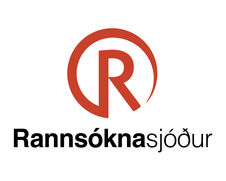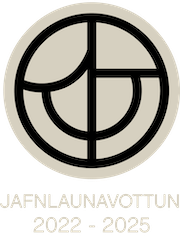Heimspeki og kreppa lýðræðis: Mannfræðilegar forsendur sem sjálfvirkar spásagnir - verkefni lokið
Fréttatilkynning verkefnisstjóra
Í
doktorsritgerðinni rannsakar Ole hvernig staðhæfingar um manneðli hafa áhrif ástjórnmála- og hagfræðikenningar og hvernig þessar
kenningar móta hegðun og sjálfsverumanna.
Sjónum er beint að
einstaklingsmiðuðum kenningum sem byggja á mynd af einstaklingum hverra langanir (e. preferences) eru
óháðar öðrum. Í slíkum líkönum er tvennt sett fræðilega á oddinn, átök milli sjálfstæðra
einstaklinga og ósennileiki samvinnu og trausts þeirra á milli. Þar af leiðandi er viss
samfélagsleg og pólitísk skipan talin vera alger nauðsyn. Þetta viðhorf má sjá í heimspeki Hobbes og Rawls og í samfélagskenningu um skynsamlegt val (Rational Choice Theory) sem hefur verið grunnur
nýklassískrar hagfræði og nýfrjálshyggjustefnu. Vandinn er ekki sá að þetta sé
röng sýn á manneðlið heldur miklu frekar að hún hafi áhrif á sjálfsveru og hegðun fólks - að það
sé hætta á að hún verði að virkri spá (e. self-fulfilling prophecy). Það gæti orðið tilfellið
ef ein samfélagsskipan og samsvarandi hugmyndafræði yrðu allsráðandi, en veruleikinn er hins
vegar sá að við gegnum ólíkum hlutverkum í mismunandi samböndum, sem geta af sér
ólíkar gerðir sjálfsveru og skynsemi
sem rekast á og verka hver á aðra með ófyrirsjáanlegum
hætti.
Ole Martin Sandberg lauk BA- og MA-prófi í heimspeki
frá Háskólanum í Suður Danmörku. Hann kennir umhverfisheimspeki við Háskóla
Íslands.
English:
In August 2020, in the middle of the
global covid-19 pandemic, the Icelandic minister of
finance refused to improve the unemployment benefits
due to his belief that this would
prevent the unemployed from seeking employment: “That’s
just human nature,” he claimed.
But how does a professional politician in an advanced
industrial nation know what human
nature is or how this nature reacts to economic
incentives in a capitalist labor-market during a deadly pandemic with
government enforced lockdowns of the economy? It is hard to argue
that these are “natural” phenomena. We live in a
society, and humans are social beings who
are shaped by the society we live in. This society
consists of various mechanisms that shape
our values, preferences and incentives, which means we
do not have access to how humans
“naturally” behave – only to humans as they exist in
the given social structures. evertheless,
appeals to “human nature” are often used to justify the
existing social structures and political
institutions. This is a self-confirming argument, as it
points to the people who are shaped by
an existing social order to legitimize said social
order by claiming it cannot be otherwise
because of the way people behave. But if the way people
behave is in part a result of that
social order, then the argument is meaningless.
This doctoral dissertation by Ole Martin Sandberg examines the role claims about “human nature” have played in political philosophy and practice – from the philosophies of Thomas Hobbes and John Rawls to the New Public Management reforms of the modern Nordic welfare state. These are often based in assumptions that humans are self-interested individuals who compete over resources and the political institutions are designed to manage this competition. Examining a range of studies in human behavior – from psychology, sociology, anthropology and behavioral economics – Sandberg shows that the initial theories about “human nature” become part of actual human subjectivity and behavior: If we are told that we are “naturally” selfish or competitive it prompts us to behave selfishly and competitively. And institutions based on these assumptions tend to promote the behavior they assume by focusing on material incentives rather than more intrinsic values. This is a problem if we would like people to cooperate or to seek employment because they find meaning in it beyond the purely financial gains. As an example, Sandberg looks at the implementation of neoliberal policies such as the New Public Management reforms in the Nordic countries (in particular Denmark). Assuming that most humans primary motivation for working is the financial incentive and that they will avoid work when given the chance, these reforms have instituted a regime of surveillance, control, competition and individualized financial rewards, in order to promote the most efficient labor force in the public sector. This has not led to more efficiency. But it has led to workers in the public sector, particularly in education, health and care work, to become stressed and feel a lose of meaning which reduces, not increases, their motivation. This loss of meaning spills over to other areas, such as the political realm where the increased focus on the “politics of necessity”, a purely economic “real-politik”, has coincided with a decrease in political participation and engagement and an increased distrust in the political and democratic institutions. If we want to bring back the joy and shared meaning in both politics and economy we need to go back to the theoretical assumptions and change our views of “human nature.” Besides the doctoral dissertation Sandberg has also developed these themes in two papers. In “Climate Disruption, Political Stability, and Collective Imagination” (Radical Philosophy Review 2020) he examines how ideas about “human nature” shape the ways governments have responded to climate-induced and other disasters and argues that we can expand our ideas about human “nature” by observing the ways humans have cooperated and helped each other during recent disasters. In “Selfish Genes, Evil Nature: The Christian Echoes in Neo-Atheism”, a chapter in the book Unchaining Solidarity edited by the famous philosopher Catharine Malabou (to be published October 2021), Sandberg examines the early debates about “human nature” inspired by Darwin’s theory of evolution and argues that evolution does not commit us to an idea of a fixed, essential, human “nature” that determines us to be either morally “bad” or “good”, selfish or cooperative – the social structures are just as important for how social beings develop.
Publications:
• (forthcoming) Life in Solitary: Anthropological Assumptions as Self-Fulfilling Prophecies, doctoral dissertation at the University of Iceland, expected publication in June 2021.
• October 2021: “Selfish Genes, Evil Nature: The Christian Echoes in Neo-Atheism,” in Unchaining Solidarities: Reflections on Cooperation and Mutual Aid, ed. CatherineMalabou (forthcoming).
• (Submitted): "Climate Crisis and the Logic of Masculinist Protection" (final title will bein Icelandic), invited paper for Fléttur (IV), published by the University of Iceland,prospected winter 2021.
• 2020: “Climate Disruption, Political Stability, and Collective Imagination”, RadicalPhilosophy Review, Radical Philosophy Review Volume 23, number 2 (2020): 1–136,DOI: 10.5840/radphilrev2020324108
• 2020: "Kórónan sem krísa fyrir heimspekina," Hugrás, 20. apríl, 2020. Also publishedin English as “Corona is a Crisis for Philosophy” onhttps://medium.com/@olesandberg/corona-is-a-crisis-also-for-political-philosophy-9b4b2477ed5f
Heiti
verkefnis: Heimspeki og kreppa lýðræðis:
Mannfræðilegar forsendur sem sjálfvirkar spásagnir/ Philosophy
and Democratic Crisis: Anthropological Assumptions as Self-Fulfilling
Prophecies
Verkefnisstjóri: Ole Martin Sandberg, Háskóla Íslands
Tegund styrks: Doktorsnemastyrkur
Styrktímabil: 2019
Fjárhæð styrks: 6,48 millj. kr. alls
Tilvísunarnúmer Rannís:
196277


